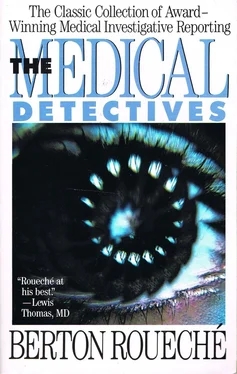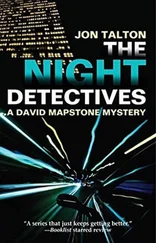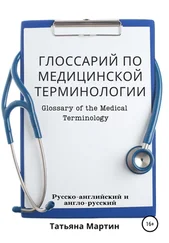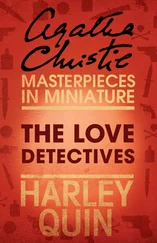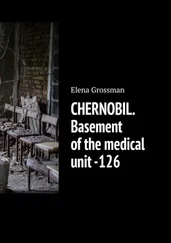"My weight went down to ninety-five pounds, but I made it to Labor Day. I went up to the lake on Friday, as usual, and Lewis came up that night. I gave my ecological report at the association meeting, and it seemed to be well received. I was nominated to serve on the board, and, weak as I was, I accepted and was elected. I was trying not to be sick, I was trying to be part of the living world. Labor Day weekend is always a little sad. It means the end of the season, the closing of the house until Memorial Day. We put up the boat and took down the tennis-court net and emptied the fridge and drained the pipes. I drove back home on Tuesday, and settled down for the winter, and everything went on as before. Except that by the end of September I began to feel a little better. I seemed to be in remission. I was still as weak as ever, but I seemed to be getting over that awful middle-of-the-night nausea.
"At about that time, I got a notice from the association. There was a board meeting scheduled for the second weekend in October. I was expected to attend. Good. It meant one last visit to the lake. Lewis wasn't interested. I drove up alone on Friday. The meeting was Saturday morning. I had my dinner and puttered around and went to bed. And woke up in the night as sick as a dog. I was twitching and salivating and shivering with cold sweat. I couldn't believe it. I was stunned. I crawled out of bed and went into the kitchen and fixed myself a cup of warm milk. I sat at the kitchen table, as depressed as I've ever been. There was a paper on the table at my elbow. It was the exterminators' regular monthly invoice. I'd seen it earlier, but I hadn't really noticed it. It was too ordinary. When we bought the cottage, back in 1971, the then owners told us they had had regular exterminator, insect-pest-control service, and advised us to continue it. Which we did. It seemed like a good idea. We even increased it during the summer of 1983, when we began to see a lot of carpenter ants. We had always had some, but now there were hordes, and they were huge—really enormous. So we asked the exterminators to add ants to their regular insect controls. Well, as I say, I was sitting there at the table with my warm milk and looking at that invoice. My brain sort of went into gear. I had been feeling better, but now I was sick again. And these people had been exterminating every month for ants. The light came on. It was three o'clock in the morning, but Lewis is a night person. He would probably still be awake. I called him up, and he answered right away. I said, 'I think I know what's wrong with me. There's the exterminators' invoice here, and I'm as sick as I've ever been. Go to "Goodman & Gilman" and look up insecticides.' 'Goodman & Gilman' is 'The Pharmacological Basis of Therapeutics'—the standard text on the subject. I stayed on the phone, and Lewis came back with the book open to insecticides, to the organophosphates. He read off the clinical picture. Here's what he read: 'Respiratory effects consist in tightness in the chest and wheezing respiration, due to the combination of broncho-constriction and increased bronchial secretion. Gastrointestinal symptoms occur earliest after ingestion, and include anorexia, nausea and vomiting, abdominal cramps, and diarrhea. . . localized sweating and muscular fasciculation. . . fatigability and generalized weakness, involuntary twitchings. . .' Well, that was it. That was me. I was a textbook case.
"I went to the board meeting, and left the minute it ended. Sunday, at home, was a long day. I was waiting for Monday. The first thing Monday morning, I telephoned the exterminators at the lake. I talked to the manager. I told him what I suspected, and asked what chemicals they were using to control the carpenter ants. He seemed astonished. He couldn't see any connection between the cottage spraying program and my illness. However, he called me back with the information I wanted. I thanked him, and told him to discontinue the spraying program. My hunch seemed horribly right, but I was trembling. The insecticides that his technicians—he called them technicians—had used were Ficam and Dursban. Dursban is an organophosphate. Ficam is methyl carbamate. You may remember reading about the so-called nerve gases that were developed in Germany just before the Second World War. Their active ingredients included one or more of the organophosphates. And that's what I had been cleaning up at the cottage on those summer weekends—the residue of an organophosphate spray. That was my hemlock pollen.
"There are dozens of organophosphate insecticides on the market. They are wonderfully effective insecticides. They are very quickly and completely absorbed by all routes—through the skin, through the lungs, and by mouth. The organophosphates—and the carbamates, too—are what are called cholinesterase inhibitors. Cholinesterase is an enzyme found in the nervous tissue and in the blood—in the plasma and the red cells. It acts as a neural moderator. It controls the accumulation of an ester that governs the transmission of nerve impulses. It transmits the signal to raise my arm, say, or move my fingers. When that action is done, normally the impulse is erased. Carbamates and organophosphates block that normal procedure. They defuse cholinesterase. The result is a continued stimulation of the nervous system. That produces, directly or indirectly, the wide range of symptoms and signs in organophosphate intoxication.
"I knew, or thought I knew, the nature of my illness. But, of course, I wasn't going to treat myself. I wanted expert advice. I inquired around and got the name of an expert—a Ph.D.—in pesticide operations in the Pennsylvania Department of Agriculture, in Harrisburg. I telephoned him and identified myself. And then I got a little tricky. I let him think I was asking for advice in the treatment of a patient. I thought I might get a more objective response if he didn't know that he was talking to the patient herself. As it turned out, he penetrated my little subterfuge very quickly, but I think it was a useful ploy. He was most sympathetic and helpful. He listened to my story. He agreed with my diagnosis. He pointed out a standard treatment. That was oral atropine sulfate, six-tenths of a milligram, every four hours around the clock. Atropine, or belladonna, can control many aspects of organophosphate poisoning, although not the muscle involvement. There is a drug that reverses the muscular weakness, but it can be used only in acute cases. My trouble, unfortunately, was chronic. The unhappy fact is that there is not much information about chronic exposure to subacute doses of organophosphates. As for the weakness and soreness in my thighs, the only therapy for that was hope and time. That and the avoidance of any further exposure. I remember he spoke of the accumulation of the insecticides in the ambient air of the closed cottage. He said that every time I walked in there on those summer Friday afternoons it was like walking into a fumigation chamber.
"Well, there was no chance of that happening again. The cottage was closed for the winter, and, on the pesticide specialist's advice, we were going to arrange for a professional team to give the cottage a thorough scrubdown before we moved in on Memorial Day. Meanwhile, I was feeling very much better. The atropine was wonderfully effective. The only problem was still my legs, my weakness. But even that was manageable. Lewis's birthday is in November, and we had a long-standing plan to celebrate it with a tour of the Loire Valley. Which we did. We ate the wonderful food and drank the wine and saw the beautiful sights, and I managed pretty well. Maybe I overdid it. Because I began to get some twinges, some pain in my left knee. Still, I felt good enough to go out to Aspen in January. Now we're in 1985. I went to Colorado alone, as usual. Lewis went to Grand Cayman, to scuba dive. I'm a good downhill skier. But I wasn't this time. My legs were weak, and there was that pain in my knee. I consulted an orthopedist there, a man who knows about all there is to know about ski medicine. He did an X-ray. Negative. He found some contracture in my left hamstrings. There was no ligamentous instability. He advised me to warm up before skiing, and suggested that an arthroscopy—a kind of diagnostic surgery—might be desirable. When I got back home, I looked up a recommended orthopedist. I won't go into the hell that man put me through. He took one look at my history, saw the note about my mastectomy, and satisfied himself that I was suffering a recurrence of cancer. He put me through two agonizing procedures—an electromyography and an arthrography. Chinese tortures aimed at my knee. To no purpose. And, what was almost worse, he was always forgetting that I, too, was a physician. 'Oh, yes—that's right,' he'd say. 'So sorry.' In other words, he treated me like a woman. I mean, like brainless. I consulted a neurologist, a woman. There were more tests. They showed a fifty per cent decrease in the strength of my left quadriceps, spontaneous muscle twitchings, and some reduced sensory response in my lower left leg and foot. Her diagnosis was peripheral neuropathy, most probably caused by organophosphate intoxication. She prescribed oral Vitamin B complex and Vitamin B 2by injection, and some muscle-strengthening exercises. I had the feeling I was beginning to emerge.
Читать дальше
